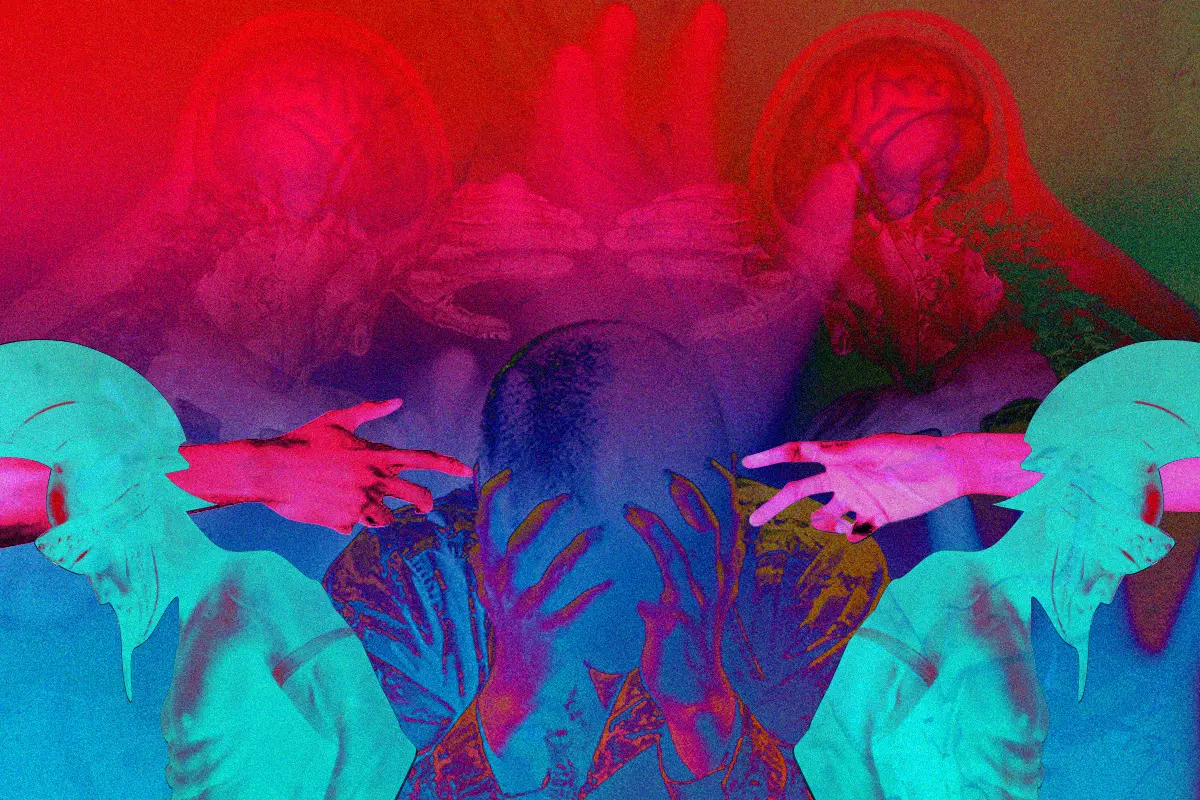Generalized anxiety disorder - All You Need to Know
2018
People with GAD experience uncontrollable, excessive worries. Learn more about diagnosis, treatment & medications here.

What is Generalized Anxiety Disorder (GAD)?
Generalized Anxiety Disorder (GAD) is a mental health condition characterized by excessive and persistent worry or anxiety about many aspects of life, such as work, relationships, health, finances, or even when there is little or no reason to worry. People with GAD hold very little or no control at all over what they are worried about. This condition is also known as chronic anxiety neurosis.
The most common age for people who usually have Generalized Anxiety Disorder is in their 30s, but it can also affect children.
This persistent worry occurs most days for at least six months and often affects daily functioning. Symptoms of GAD may include restlessness, fatigue, difficulty concentrating, irritability, muscle tension, and sleep disturbances. Healthcare providers diagnose GAD based on these symptoms and their impact on the individual's life.
If you're concerned and need to talk to someone, contact us at info.bkk@pulse-clinic.com or any of the following platforms for more information.
![]() +66 65 237 1936
+66 65 237 1936  @PULSEClinic
@PULSEClinic ![]() PulseClinic
PulseClinic
Common Signs & Symptoms
- Perceiving situations as more threatening than they indeed are
- Struggling to release worries
- Trouble focusing
- Sleeping difficulties
- Being decisive
- Feeling irritable, jittery, excessively contemplating, and finding it hard to unwind
- Feeling tired and drained
- Muscle stiffness
- Twitches or tremors
- Experiencing sweating (including sweaty palms)
- Recurrent stomachaches, diarrhoea, or other digestive problems
- Feeling shaky or feeble
- Rapid heart rate
- Dry mouth
- Being prone to being startled
- Experiencing neurological symptoms like numbness or tingling in various body parts
Only 1 in 4 children and teenagers will get GAD at some point during their teen years.
Common symptoms for teenagers are:
- Anxiety about fitting in
- Insecurity and self-esteem issues
- Excessively worrying about, or avoiding social situations
- Worrying about approvals
Add us on Line and stay in touch.
Causes & Risk Factors for GAD
GAD causes, and risk factors can come from both environmental and genetic factors, such as:
- A family member with a history of anxiety
- Ongoing or extended exposure to stressful circumstances, such as personal or familial health issues
- Overconsumption of caffeine or tobacco exacerbates preexisting anxiety
- Childhood abuse or bullying
- Specific health conditions like thyroid disorders or cardiac arrhythmias
In 2015, researchers indicated that people with GAD might experience specific brain activation in areas associated with mental activity and introspective thinking when faced with situations that can cause worry.
Generalized Anxiety Disorder Diagnosis
The diagnosis of GAD involves a mental health screening that a doctor can conduct. Your doctor will ask questions about your symptoms and how long you've been having them. You may be referred to a mental health specialist, such as a psychologist or a psychiatrist, by your doctor afterward.
Your doctor may conduct other medical tests to determine whether your symptoms stem from an underlying illness or substance abuse issue. Anxiety has been associated with conditions such as:
- Gastroesophageal reflux disease (GERD)
- Thyroid disorders
- Heart disease
- Epilepsy
- Bipolar disorder
- Pheochromocytoma
- Consumption of caffeine, decongestants, or albuterol
If your doctor suspects that a medical condition or substance abuse issue is causing anxiety, more tests may be performed and may include:
- Blood tests to examine hormone levels that might indicate thyroid disorder
- Urine tests to examine substance abuse
- Gastric reflux tests to examine your esophagus to check for GERD
- X-rays and stress tests to examine your heart conditions
Generalized Anxiety Disorder Treatment
1. Cognitive behavioral therapy
Cognitive behavioral therapy (CBT) includes regular meetings with a mental health professional. The goal of this treatment is to change your thinking and behaviours. You will be taught to recognize and manage your anxious thoughts in these therapy sessions, as well as learn how to calm yourself when upsetting thoughts interfere. Medication will usually be prescribed, along with your therapy sessions.
2. Medication
If your doctor advises medication, they will probably develop both short-term and long-term treatment plans. Short-term medications target physical symptoms like muscle tension and stomach cramps.
Common anti-anxiety medications for short-term are:
- Alprazolam (Xanax): This medication will impact the nerves and brain, inducing a calming effect and amplifying the effects of a specific natural body chemical called GABA.
- Clonazepam (Klonopin): This medication will slow down the nervous system.
- Lorazepam (Ativan): This medication will produce a calming effect, temporarily destressing the brain.
Meanwhile, antidepressants are effective for long-term management of anxiety.
Here are some common antidepressant medications:
- Buspirone (Buspar)
- Citalopram (Celexa)
- Escitalopram (Lexapro)
- Fluoxetine (Prozac, Prozac Weekly, Sarafem)
For any further recommendations, you will need to consult a medical professional.
Generalized Anxiety Disorder Complications
GAD can contribute to or worsen other mental and physical health conditions, including:
- Depression frequently accompanies anxiety disorders
- Insomnia
- Substance abuse or alcohol misuse
- Digestive issues
- Isolation from social interactions
- Struggles in work or academic settings
- Life-quality loss
- Suicidal thoughts and attempts
Seeking treatment immediately will help manage these problems.
Preventing Generalized Anxiety Disorder
If you have feelings of anxiety or depression, it is better to seek professional help early to decrease the chance of your condition getting worse.
Suggestions that may help are:
- Learning about anxiety
- Learning how medications work
- Adhering to the doctor's advice and follow-up
- Working with counsellors
- Ceasing the use of caffeine and similar stimulants
- Seeking assistance and support for potential physical contributors to anxiety
- Handling stress through regular sleep and exercise
- Developing and sustaining social interactions
Joining a walking group, going to group counseling, or volunteering with a charity may help ease the difficulty of making social connections.
PULSE Clinic Branches
![]() Thailand
Thailand
PULSE Clinic Silom Bangkok info.bkk@pulse-clinic.com Tel: +66 65237 1936 or WhatsApp
![]() or LINE official account
or LINE official account ![]()
PULSE Clinic Nana Bangkok info.bkk@pulse-clinic.com Tel: +66 95915 6385 or WhatsApp ![]() or LINE official account
or LINE official account ![]()
PULSE Clinic Nana2 Bangkok info.bkk@pulse-clinic.com Tel: +66 99426 6982 or WhatsApp
![]() or LINE official account
or LINE official account ![]()
PULSE Clinic Patong Beach, Phuketinfo.phuket@pulse-clinic.com Tel: +66 95261 5282 or WhatsApp
![]() or LINE official account
or LINE official account ![]()
PULSE Clinic Sukhumvit 37,info.bkk@pulse-clinic.com Tel: +66 92497 9353 or WhatsApp
![]() or LINE official account
or LINE official account ![]()
PULSE Clinic Airport Link Phayathai, Bangkok info.bkk@pulse-clinic.com Tel : +66842426292
PULSE Clinic Asoke – Executive Health center Asoke, Bangkok info@eu-health.org Tel :+6664 742 6528 or WhatsApp
![]() or LINE official account
or LINE official account ![]()
PULSE Clinic South Pattaya info.bkk@pulse-clinic.com Tel :+66 62 828 7969 or WhatsApp
![]() or LINE official account
or LINE official account ![]()
PULSE Clinic North Pattaya info.bkk@pulse-clinic.com Tel :+66 62 828 7969 or WhatsApp
![]() or LINE official account
or LINE official account ![]()
PULSE Clinic Nimman Chiang Mai info.cnx@pulse-clinic.com Tel: +66 99479 7168 or WhatsApp ![]() or LINE official account
or LINE official account ![]()
PULSE Clinic Phuket Town, Phuket info.phuket@pulse-clinic.com Tel: +66 65237 1936 or WhatsApp
![]() or LINE official account
or LINE official account ![]()
![]() Malaysia
Malaysia
PULSE Clinic Bukit Bintang, Kuala Lumpur info.kl@pulse-clinic.com Tel: +60321102122, Whatsapp +601165388678
PULSE Clinic Bangsar, Kuala Lumpur info.kl@pulse-clinic.com Tel: +60321102122, Whatsapp +601165388678
PULSE Clinic George Town, Penang, info.pg@pulse-clinic.com +60138039693, Whatsapp +60138039693
Hong Kong
PULSE Clinic Central, Hong Kong info.hk@pulse-clinic.com Tel: +852 2389 8250
![]() Singapore
Singapore
PULSE Clinic Tanjong Pagar, Singapore info.sg@pulse-clinic.com Tel: +65 6974 59190 or WhatsApp
![]()
![]() Philippines
Philippines
PULSE Clinic Manila, Philippines info.ph@pulse-clinic.com Tel: +63 91712454970 or WhatsApp
![]() or LINE official account
or LINE official account ![]()
We’re here to help
Whatever you’re experiencing, you're not alone. PULSE Social Enterprise is here for any concerns and questions that you might have about your health.
From general wellness to mental well-being to sexual health, we will be sure to give you fast, reliable, and safe diagnosis, treatment, and consultation.
Trust PULSE CLINIC to take care of your health like other 45000 people from over 130 countries. We provide discreet professional service with high privacy. Here to help, not to judge.
Loading...
Clinic Locations
Loading...





